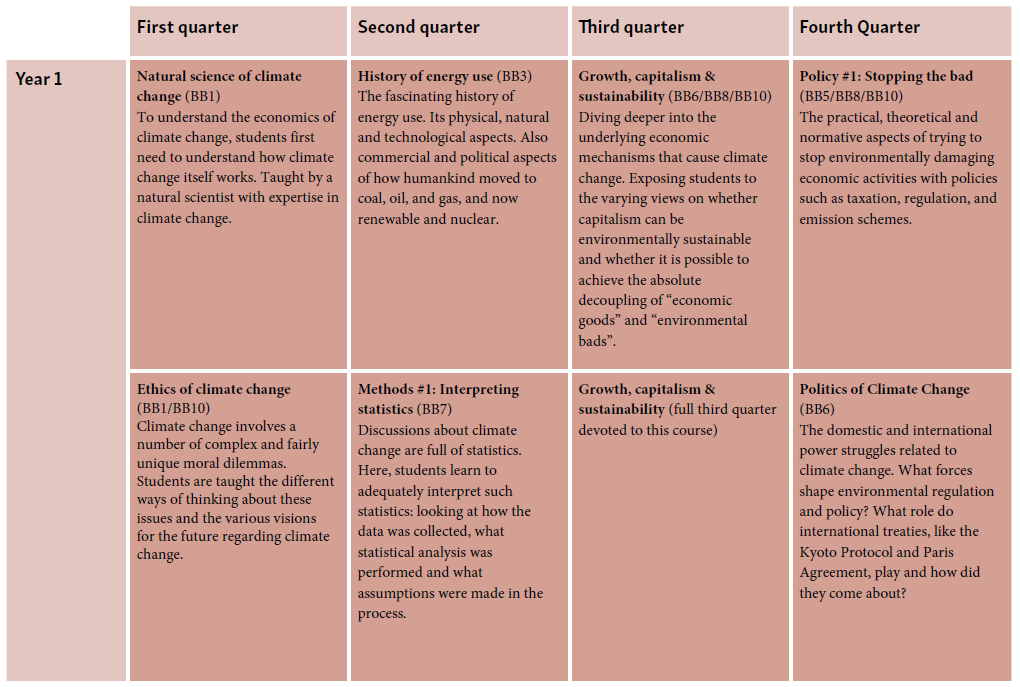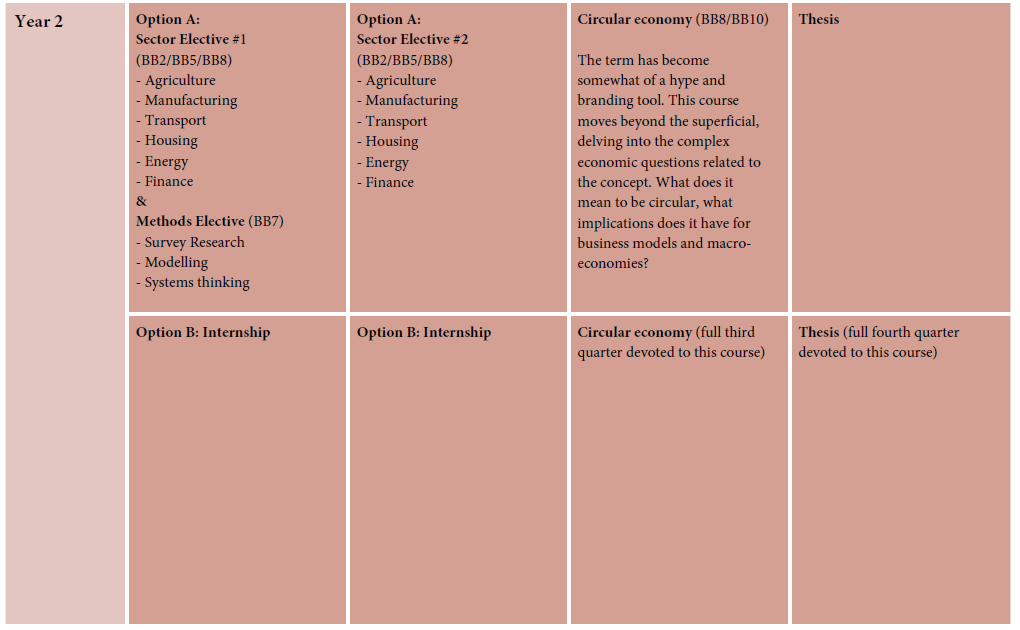Programme slogan: The economics behind the ecological challenges of our time
Example Curricula
This chapter provides examples of how economics programmes could look and be structured. Such proposals help make the debate concrete and bring out potential trade-offs. This is important because critics of current programmes often simply ask to teach more and more, without considering practical limits on time and content. Curriculum proposals help us to flesh out not only what could be added to a programme, but also what could be left out. In addition, these examples show how the building blocks of Economy Studies can be combined to form coherent programmes.
This chapter is also intended to make clear once again: Economy Studies is not a blueprint of a single, ‘ideal’ curriculum. It is possible to design a wide variety of programmes with these building blocks, and it is our hope that they will be used for this. We firmly believe that the world is best served with a wide variety of economists. One size does not fit all.
Example Curricula:
- Bachelor in Economics with a Theoretical Focus
- Bachelor in Economics with a Real-World Focus
- Major Economics in a Liberal Arts and Sciences Programme
- Master in Public Economics
- Design Your Own Curriculum, Step by Step
- Master in Financial Economics
- Master in Economics of Climate Crises
- Research Master in Industrial Economics
Example Curriculum 7: Master in Economics of Climate Crises
This master’s programme prepares students for a position in the rapidly growing field of environmental policy-making. It has a strong focus on real-world economics, from policy creation and evaluation, to in-depth studies of major sectors impacting (or impacted by) processes of climate change. This programme is by the nature of its core theme also somewhat interdisciplinary, including elements of the natural sciences and governance-related disciplines. However, it does also include a solid foundation in the most relevant strands of economic theory, as well as furnishing students with several suitable research methodologies.
The first year starts with a broad, high-level overview of the phenomenon of climate breakdown: an update on the most recent natural science behind it, and its implications for society at large. It continues with the historical background of energy use – the main factor in climate change – which will give students a grounding in the challenge at hand: changing a society’s entire energy system. This is coupled with a statistics course, relevant for interpreting the wealth of quantitative analyses available on the subject. The first semester ends with a brief but intense course on the economic system and a discussion of its compatibility with various forms of sustainability.
The second semester kicks off with a number of policy courses focusing on harm-reduction, the creation of possible alternatives, and the political-economic context in which all of this has to be negotiated. This is coupled with a second methods course, this time in qualitative data-gathering and analysis. The first year ends with a short research project, in which students work on a practical policy-related question, from the perspective of either the government or the private sector.
The third semester is focused on individual economic sectors: students select two in which they will gain a deeper introduction. Energy is an obvious choice, but other sectors such as housing or manufacturing will also require retooling in the face of the climate threat, as do agriculture, transport and finance. Here, students also choose a final methods elective. Having studied two sectors in depth, the students finish the semester with a theoretical introduction into circular economics. The final semester is wholly spent on the thesis, which could also take the form of a practical research project.
Programme overview

